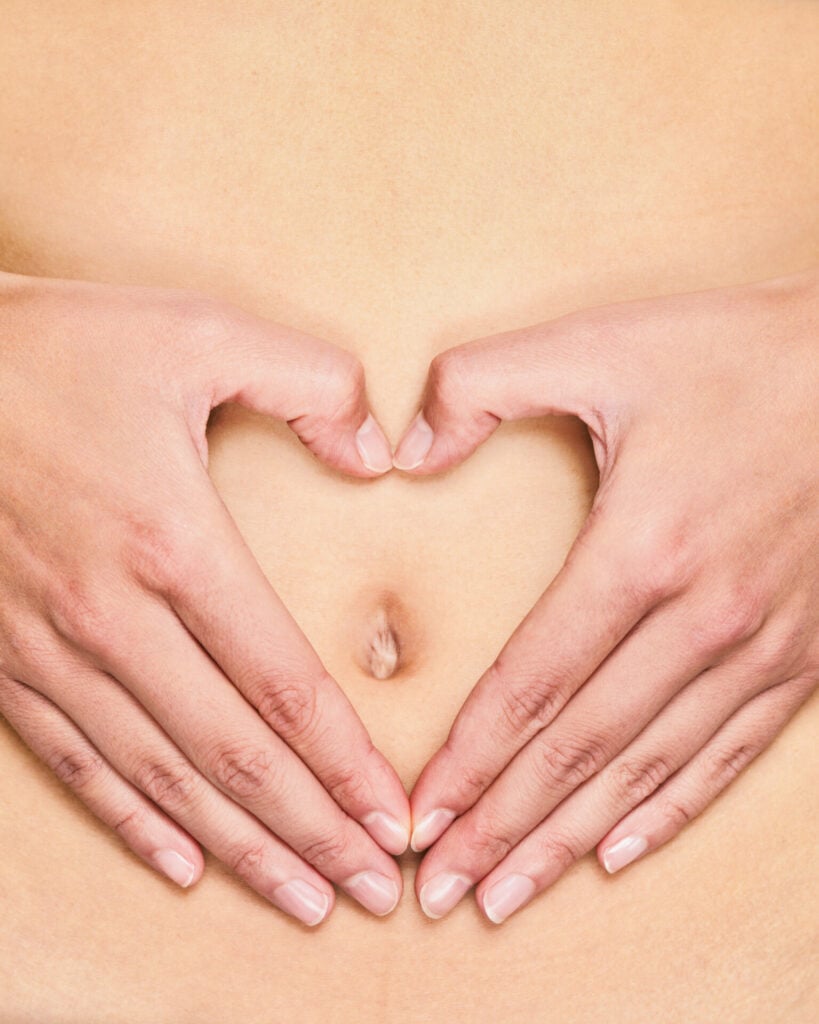If you race through your day in a relentless rush, snap at colleagues that you’re too busy to talk, sigh and tut at your children, and rely on coffee and cakes to keep you going, you may be suffering from Rushing Woman’s Syndrome.
While being productive and busy can sound impressive, Dr Libby Weaver, the Australian nutritional biochemist who coined the phrase, warns that Rushing Woman’s Syndrome can not only make us irritable and grumpy, it can also have a disastrous impact on our health.
‘Rushing Woman’s Syndrome is probably more prevalent in cities like Dubai, where there is a faster pace of life but it isn’t discerning between city and country. It can affect anyone with stress in their lives’
She concedes that men also suffer from stress, but she points out that women have only been in the workplace for last 70 years, so juggling a day’s work, taking care of a family and running a home is taking its toll on female bodies that aren’t genetically set up to cope with huge amounts of stress.
‘Rushing Woman’s Syndrome is probably more prevalent in cities like Dubai, where there is a faster pace of life,’ says Dr Weaver, ‘but it isn’t discerning between city and country. It can affect anyone with stress in their lives.’
According to a survey by YouGov, a research and consulting organisation, almost two thirds of women in the UAE are at risk. But why does stress affect women so adversely? The answer, it seems, goes back to our ancestors’ times.
‘When we’re stressed, we produce the hormone adrenaline,’ Dr Weaver, author of Rushing Woman’s Syndrome, explains. ‘Historically, we made adrenaline when our lives were threatened, and back then adrenaline communicated danger to every cell in our body.

‘But even though we’re relatively safe now, our bodies still think we’re facing a threat because of stress.
‘This feeling that we need to get out of danger leads to high blood pressure, which affects one in three adults. It also diverts the blood supply away from our digestive system and to our arms and legs so we can ‘fight or flight’. This could explain why one in five women has irritable bowel syndrome.’
It appears to be a vicious circle. Dr Weaver explains when we’re stressed, our bodies burn glucose, not fat, so we end up craving sugar and caffeine. But both caffeine and sugar plunge us back into a state of stress, and so we reach for another cappuccino and chocolate bar… and the cycle goes on.
As well as giving women painful periods and debilitating pre-menstrual syndrome symptoms including mood swings, stress can also affect our fertility.
‘When the body makes stress hormones, it impacts on other ‘feel good’ hormones that impact our libido because our bodies don’t want to bring a baby into a stressful situation,’ explains Dr Weaver.
‘It can also have an impact on our sleep. When we’re on alert because of high adrenaline, our bodies are worried we might not wake up in time if there was a danger, so we don’t sleep as soundly.
‘Sleep doesn’t restore us. We wake up tired. The effect of lousy energy means you don’t apply for the jobs you want to go for, and your self-talk is more negative.’
So what can we do to break free of this cycle of being wired and tired? Dr Weaver has some solutions we can all practise, anywhere, anytime, and business and life strategist Sami Toussi shares her time management tips too.
Cut The Caffeine!
Start by being honest about your caffeine intake, suggests Dr Weaver, and note how it affects you.
‘Caffeine leads the human body to make adrenaline,’ she says. ‘Remember that’s the hormone behind anxious feelings. A coffee shop latte will contain around 200mg of caffeine, while a cup of tea has about 50mg. Even green tea has 30mg per cup.
‘Everyone has a different tolerance level. Some people won’t notice any difference after one coffee, but others will notice their hearts start to race, they will have rapid thoughts and they will see everything as urgent. Caffeine stays in the body for a minimum of eight hours.’
And Breathe!

‘When you breathe short and sharp, with only your chest moving, that’s how we breathe when we’re in danger,’ says Dr Weaver. ‘Nothing lowers our stress hormones faster than diaphragmatic breathing. When you move your diaphragm, it sends a signal to the nervous system that you are safe.
‘We can’t override stress by just thinking we’re calm. The nervous system gets its instructions from our blood, so the only way we can override it is by deep breathing.
‘I recommend regular yoga or tai chi which practise breathing. You could also start some rituals of your own. When you have a few minutes to spare, instead of checking your phone, do 20 long slow deep breaths in and out, or when you’re in your car at traffic lights, do some deep breathing. This can be game-changing and you will start to alleviate your rushing woman’s syndrome.’
Attitude of Gratitude

‘Let yourself have what you already have!’ advises Dr Weaver. ‘When you speak to people who are dying and ask what they’re going to miss, they say their partner’s face, or the feel of their dog’s fur on their fingertips. We should let ourselves enjoy what we already have.
‘As you go throughout your day, appreciate the good things like access to clean, running water or someone to chat to. The nervous system can’t do joy and anxiety at the same time, so if you practise gratitude, you will have a mindset shift.’
Plan, Plan, Plan
Some careful planning will help us avoid cramming our days with 101 things we need to get done, says business and life strategist Sami Toussi, who is based in Los Angeles.
‘Remember everything takes longer than we think,’ she advises. ‘If you think it’s going to take you an hour to write an article, a post or a speech, then schedule an hour and a half. In a worst case scenario, you’ll have some free time.
‘Leave windows of buffer time. Don’t fill every second of every day. Unexpected things will always come up so give yourself time to deal with last-minute things that matter and to be spontaneous.
‘Plan your most important tasks the night before so that when you wake up, you know exactly what needs to get done. You’ll be ready to conquer your day.’
Morning Ritual
To slow us down, Dr Weaver suggests we start each day with a morning ritual of solitude – even if it’s just ten minutes before the rest of the household. This time can be used effectively to alleviate rushing woman’s syndrome symptoms.
‘Sit on your balcony or in your garden with a peppermint tea and do some diaphragmatic breathing,’ suggests Dr Weaver. ‘This won’t change what you have to do, but it will change how you see things. You won’t panic when you see you have 200 emails or get stressed at the waiting 50 WhatsApp messages. Instead, you’ll probably realise there are only ten that need answering immediately.
‘On your drive to work, listen to some restorative spa music, or do some meditation on your commute on public transport. If you have a desk job, have little breaks every hour and do your 20 long slow deep breaths.
End Your Day Well
‘In the evening, lie down with your legs up against a wall for ten minutes,’ suggests Dr Weaver. ‘You’ll immediately drop down into diaphragmatic breathing. And at the end of the day practise gratitude, either mentally or in a journal.’
But what will happen if we don’t stop rushing towards burnout? Is rushing woman’s syndrome and stress really so dangerous?
Dr Weaver warns: ‘We won’t have the energy to move our bodies in a functional way and our brains won’t be as sharp as they once were. Our quality of life will diminish and we’ll still be alive but we’ll be in the process of dying for longer.’


- Dr Libby Weaver has a 30-day online course Overcoming Rushing Woman’s Syndrome designed to teach you how to truly reduce your stress—and the negative health consequences it can elicit—while living a full and thriving life.
- Sami Toussi is a business and life strategist who works with clients all over the world, including in the UAE













